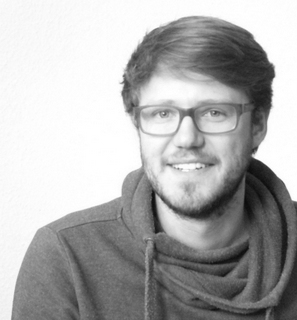Social innovation in cities
Mieg, H. A., & Töpfer, K. (eds.). (2013). Institutional and
social innovation for sustainable urban development. London:
Earthscan.
Which new institutions do we need in order to trigger local- and
global sustainable urban development? Are cities the right starting
points for implementing sustainability policies? If so, what are the
implications for city management? This book reflects the situation
of cities in the context of global change and increasing demands for
sustainable development.
more/less
text
The book introduces core findings, new methods, and international
experience related to sustainability innovations and the social
transformation of cities, synthesizing insights from megacity
research, sustainability science, and urban planning. Written by a
team of more than 50 leading researchers and practitioners from
all five continents, it traces general urban transformations and
introduces new approaches such as: smart growth strategies;
cross-sectoral, transdisciplinary urban transition management;
"rubanisation"; and city "syntegration." The book reveals the
potential of new, networked agencies of sustainability
transformation, and discusses the role of science institutions in
the diffusion and implementation of institutional and social
innovations.
Students, researchers, and professionals working on issues of
sustainable development, environmental programs in human
geography, environmental sciences, planning and the built
environment, sociology and policy studies, institutional
economics, and environmental politics will find this comprehensive
book of immense value.
The book results from workshops and discussions at the Institute
for Advanced Sustainability Studies (IASS), Potsdam. The IASS is a
German government-funded research institute and international hub
for sustainability experts from natural and social sciences,
politics, technology, and civil society. Prof. Töpfer is Executive
Director of the IASS and former Executive Director of the United
Nations Environment Programme (UNEP).
Order
here
Metropolen: Begriff und Wandel
Mieg, H. A. (2012).
Metropolen: Begriff und Wandel. In J. Oberste (Hrsg.), Metropolität
in der Vormoderne (S. 11-33). Regensburg: Schnell + Steiner.
Metropolen sind Referenzorte. Metropolen dienen als Bezugspunkte im
Städtesystem unserer Welt, sie haben potenziell Leit- und
Vorbildfunktion.
Mieg, H.A. (2010). Metropolen. In D. Henckel, K. von Kuczkowski, P. Lau, E. Pahl-Weber, F. Stellmacher (Hrsg.), Planen - Bauen - Umwelt: Ein Handbuch (S. 322-325). Wiesbaden: VS Verlag.
Interdisziplinäre Stadtforschung
"Stadt. Ein
Interdisziplinäres Handbuch", hrsg. von Harald A. Mieg und Christoph
Heyl, Stuttgart: J.B. Metzler.
Interdisziplinarität wird oft gefordert, ist aber schwierig zu
erreichen; und das Ergebnis kann in seiner Vielfalt und
Uneinheitlichkeit irritierend wirken.
more/less text
Beim Thema Städte scheint Inter- oder Multidisziplinarität heute
unverzichtbar. In Städten kreuzen sich so unterschiedliche
Phänomene wie Straßenbau, Theaterschaffen und Derivatehandel. Das
eben erschienene Werk "Stadt. Ein interdisziplinäres Handbuch"
eröffnet zwei Zugänge zum Phänomen Stadt. Zum einen kommen die
vielen einzelnen Disziplinen zur Sprache, die eine Stadtforschung
aufzuweisen haben. Dies reicht von der Archäologie über
Geographie, Ökonomie und Soziologie bis hin zur
Verwaltungswissenschaft. Der zweite Zugang führt in eine
vereinheitlichende, kulturwissenschaftliche Darstellung. Stadt
wird als kultureller Raum verstanden und in seiner Textur
erkennbar gemacht. Die Einzelbetrachtung umfasst Themen und
Ansätze wie Performanz; Stadt und Literatur; Privatsphäre; Stadt
und Religion oder das Gedächtnis der Stadt. Zum Thema Stadt dürfte
es kaum ein anderes Handbuch geben, das in dieser Konsequenz
Interdisziplinarität sichtbar werden lässt.
Methoden
Synchrone Diskursanalyse. Mieg, Harald A.; Oevermann, H. 2015. Planungsprozesse in der Stadt: Die synchrone Diskursanalyse Forschungsinstrument und Werkzeug für die planerische Praxis. Zürich: vdf.
[Leseprobe]
Experteninterview. Mieg, Harald A., Näf, M. 2006. Experteninterviews: Eine Einführung und Anleitung. Lengerich: Pabst. [pdf]
Hinweise zum wissenschaftlichen Arbeiten auf wissenschaftlich-arbeiten.org



